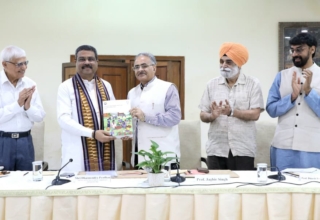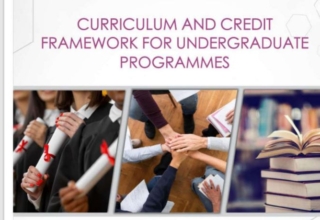
The Digital University announced in the budget 2022-23 is likely to begin early next year, which is 2023 and will commence with certificate & diploma programs in January itself and the full degree programs will begin from next academic year in July 2023. This was said by Prof M Jagdish Kumar, Chairman, and University Grants Commission (UGC) at the roundtable meeting on Enhancing Competitiveness and Quality Revolution in Indian Higher Education (IHE) organized by the ASSOCHAM in New Delhi on Sep 8.
Prof Kumar hinted at a range of sweeping reforms in works that are likely to be announced very soon. These include new regulations for online courses by the universities. “We don’t want to distinguish between online and physical programs. We are expecting the Digital University and new online regulations provide flexibility in the system and importantly restructure the architecture of higher education system for an exponential growth. Our aim is to take higher education to the doorsteps of students,’ he said. He also informed that UGC is actively considering doing away with the mandatory paper publishing by Ph D scholars before working on thesis as it is taking a toll on their work as they spend much time in scouting for publishers. “I am not committing anything but this is a hindrance and we’re looking at it,” he added.
UGC chairman also suggested that Ph D can be done by interested faculty while teaching as they are also researching. “When IITs and IIMs were first started, most people joined as lecturers and made a mark. So, we have to look beyond the impossible,” he said. He also disclosed that UGC is in talks with the Ministry of Electronics and Information Technology (MeitY) whereby the 2.5 lakh common service centres across the rural India can deliver online courses to those who don’t have devices. “Anybody can walk into these CSC and pay a monthly subscription and attend online classes as this formalizes,” he said.
Prof Kumar also dispelled doubts about multiple entry and exit routes provided in the UG programs under NEP. He said that universities have enough autonomy to devise their admission policy and provide for checks and balances and any misuse. “Students don’t have an absolute right and I don’t see mass exoduses or entries as most students would like to complete their education unless some personal reason, health issue or poverty makes him leave the programs,” he explained. He also answered on similar lines on whether UGC would also come out with some twinning/dual degree programs regulations for domestic HEIs. “Nothing stops you from entering into MoUs for exchange programs. But for clarity, we will issue guidelines in this regard as well,” he assured. UGC chairman also talked about the increase in foreign student intake from 15% to 25% and advised universities to start ground work for attracting students by getting NAAC accreditation and join NIRF rankings besides working on logistics. He also informed that a draft regulation on allowing Indian HEIs to set up campuses abroad and foreign HEIs in India is being prepared. He also said that draft guidelines for professor of practices (PoP) is ready for public feedback and this will actually catalyze industry-academia exchange.
He also spoke on the 160 deemed universities and said that uniformity in governance is needed and UGC is ceased of their issues. He said there is a plan to set up seven centres for mentoring teachers of higher education as they are important for making students better learners.










